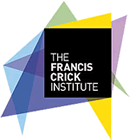About the Project
This 4-year PhD studentship is offered in Dr Frank Uhlmann’s Group based at the Francis Crick Institute (the Crick) & Dr Maxim Molodtsov’s Group based at University College London position
Gene expression, chromosome segregation and DNA repair all depend on a chromosomal multiprotein complex, called Cohesin. In dividing cells, Cohesin keeps the sister chromatids together until anaphase, ensuring high fidelity of cell division. In interphase cells, Cohesin physically organizes DNA by generating chromatin loops and topologically associated domains. These functions are thought to rely on the ability of Cohesin to encircle DNA topologically and move along DNA. However, how Cohesin mechanistically interacts with DNA at the molecular level and how it generates forces necessary to keep together and rearrange DNA is poorly understood.
This project will be a collaboration between Frank Uhlmann’s and Maxim Molodtsov’s laboratories. The student will take advantage of the biochemical expertise in the Uhlmann lab to generate and characterize recombinant Cohesin as well as Cohesin regulatory proteins. These will then be used for real-time single-molecule fluorescence and force spectroscopy to study the dynamics and mechanics of cohesin molecules on DNA at single molecule level using the expertise provided by the Molodtsov lab.
The student will analyse single molecule data and interpret the results. Quantitative mathematical and biophysical input will contribute to develop a molecular model of cohesin function. The results of these approaches will provide fundamental mechanistic insights into how an essential chromosomal protein complex controls the spatial organization of genomes with implications for a wide range of chromosomal functions.
Talented and motivated students passionate about doing research are invited to apply for this PhD position. The successful applicant will join the Crick PhD Programme in September 2019 and will register for their PhD at UCL.
Applicants should hold or expect to gain a first/upper second-class honours degree or equivalent in a relevant subject and have appropriate research experience as part of, or outside of, a university degree course and/or a Masters degree in a relevant subject.
APPLICATIONS MUST BE MADE ONLINE VIA OUR WEBSITE (ACCESSIBLE VIA THE ‘APPLY NOW’ LINK ABOVE) BY 12:00 (NOON) NOVEMBER 13 2018. APPLICATIONS WILL NOT BE ACCEPTED IN ANY OTHER FORMAT.
Funding Notes
In addition to meeting the standard Crick academic eligibility criteria applicants to this position will be expected to hold either a 4-year MSci degree (at 2.1 level or higher), or a 3-year undergraduate degree plus a Masters degree with merit.
Non-EU applicants are not eligible for the funding for this project.
Successful applicants will be awarded a non-taxable annual stipend of £22,000 plus payment of university tuition fees.
References
1. Bouchoux, C. and Uhlmann, F. (2011)
A quantitative model for ordered Cdk substrate dephosphorylation during mitotic exit.
Cell 147: 803-814. PubMed abstract
2. Uhlmann, F., Bouchoux, C. and Lopez-Aviles, S. (2011)
A quantitative model for cyclin-dependent kinase control of the cell cycle: revisited.
Philosophical Transactions of the Royal Society of London. Series B, Biological Sciences 366: 3572-3583. PubMed abstract
3. Kuilman, T., Maiolica, A., Godfrey, M., Scheidel, N., Aebersold, R. and Uhlmann, F. (2015)
Identification of Cdk targets that control cytokinesis.
EMBO Journal 34: 81-96. PubMed abstract
4. Godfrey, M., Touati, S. A., Kataria, M., Jones, A., Snijders, A. P. and Uhlmann, F. (2017)
PP2ACdc55 phosphatase imposes ordered cell-cycle phosphorylation by opposing threonine phosphorylation.
Molecular Cell 65: 393-402 e393. PubMed abstract
5. Touati, S. A., Kataria, M., Jones, A. W., Snijders, A. P. and Uhlmann, F. (2018)
Phosphoproteome dynamics during mitotic exit in budding yeast.
EMBO Journal 37: e98745. PubMed abstract

 Continue with Facebook
Continue with Facebook

